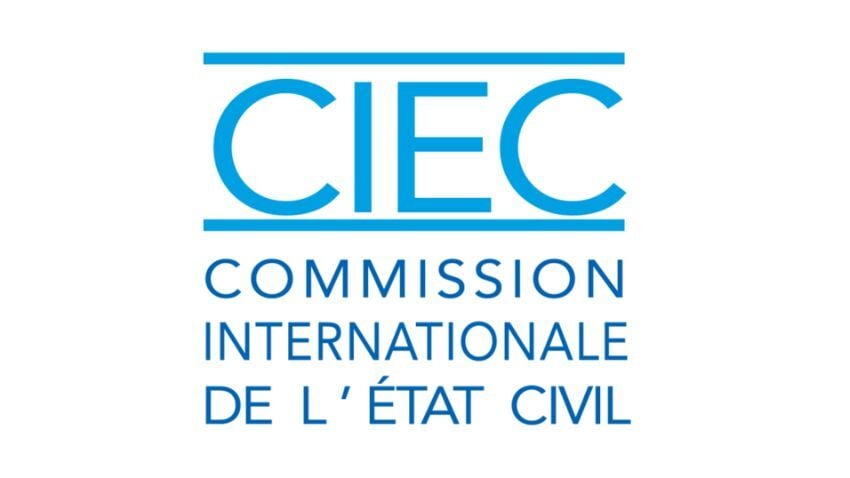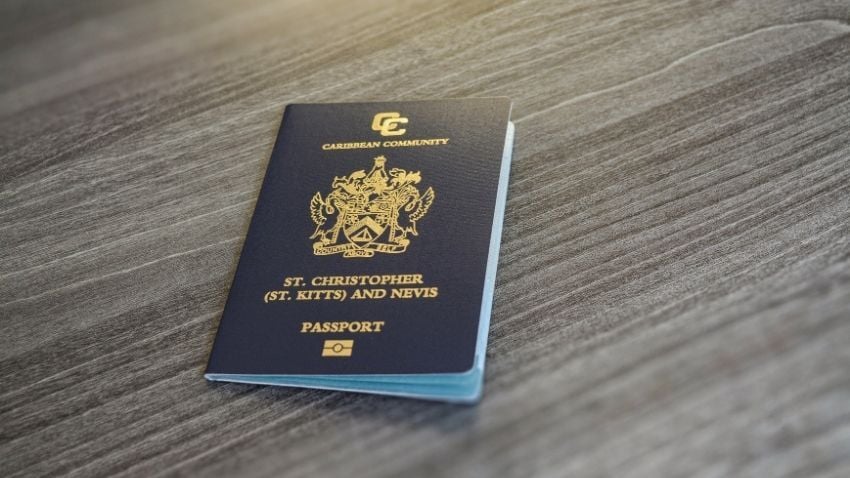St. Kitts & Nevis To Update CBI With Physical Presence Requirement
St. Kitts and Nevis has confirmed that its Citizenship by Investment Program will undergo a major restructuring beginning in 2026. If you’ve been...

5 min read
If you are living abroad, preparing for an international move, or need to present official German documents outside of Germany, for example, for marriage, work, study, or business, you may be asked to have them apostilled.
Navigating international document recognition can feel a bit overwhelming at first, especially in a federal country like Germany, where responsibilities differ depending on the region and the type of document. The good news is that once you understand the process, it becomes much more straightforward.
This article explains exactly how to get your German documents apostilled, what to prepare, and what to expect along the way.

An apostille certifies the authenticity of German documents so they can be used abroad without further legalization in Hague Convention countries
An apostille is an international form of document authentication created under the Hague Apostille Convention of 1961. It certifies that the signature, seal, or stamp on a public document is genuine and that the person who signed it had the authority to do so.
In other words, it doesn’t validate the content of your document — only its authenticity. Once a document has been issued with an apostille, it can be recognized in any other country that is part of the Hague Convention, without further legalization or embassy authentication.
Germany has been a party to the Hague Convention for many years, meaning that documents issued here can be easily recognized abroad with the correct apostille. If, however, your document will be used in a country that is not a member of the Hague Convention, you’ll need to go through a longer consular legalization process instead. Always check the destination country’s requirements before you begin.
Many types of German documents can be apostilled. These generally include:
Civil documents such as birth, marriage, or death certificates
Educational certificates, including diplomas, transcripts, and university degrees
Corporate or commercial documents such as articles of incorporation, trade register extracts, or chamber of commerce certificates
Court or notarial documents, including affidavits, contracts, and powers of attorney
Police or criminal record certificates (Führungszeugnis)
Essentially, any document issued by a recognized German public authority or a certified institution can be apostilled, provided it meets the formal requirements of authenticity.
Certified translations are not considered public documents and therefore cannot receive an apostille. However, you may request a certificate from the president of the competent court verifying that the translator is sworn or certified. This certificate can then receive an apostille.

To get an apostille in Germany, you must apply to the correct authority. Federal documents are handled by the Bundesamt für Auswärtige Angelegenheiten, while state and notarised documents follow local rules
The most important part of the process is knowing where to send your document. In Germany, this varies depending on both the type of document and the federal state (Bundesland) where it was issued.
Because Germany operates a federal system, apostilles are not handled by a single national office. Instead, several different authorities are responsible for various types of documents:
Federal documents: Since 1 January 2023, the Federal Agency for Foreign Affairs (Bundesamt für Auswärtige Angelegenheiten) in Brandenburg an der Havel is responsible for issuing apostilles for most federal documents.
Address:
Bundesamt für Auswärtige Angelegenheiten
Referat Apostillen und Forderungsmanagement
Kirchhofstraße 1–2
14776 Brandenburg an der Havel
Exception: For documents issued by the Federal Patent Court or the German Patent Office, the apostille is issued by the President of the German Patent Office.
State or local documents: Responsibility differs between the 16 federal states. Generally speaking, the competent authorities include:
In Berlin – State Office for Residence and Regulatory Affairs (Landesamt für Bürger- und Ordnungsangelegenheiten)
In Lower Saxony – Police headquarters in Braunschweig, Göttingen, Hannover, Lüneburg, Oldenburg, and Osnabrück
In Saxony – State directorates in Chemnitz, Dresden, and Leipzig
In Thuringia – State administrative office in Weimar
In Rhineland-Palatinate – Supervisory and service directorate in Kaiserslautern
Because each state regulates apostilles differently, always confirm with the authority that originally issued your document which office handles apostilles for that type of document.
University degrees: Universities often require that you first obtain a certified copy directly from them. The apostille is then issued by the competent authority in the same state as the university.
Notarised documents: If your document has been notarised by a German notary, the apostille is issued by the Regional Court (Landgericht) responsible for that notary’s jurisdiction.
Each authority has its own specific process, fees, and office hours. Before submitting, it’s always best to check the official website or contact the relevant office directly.
Once you know which authority will handle your application, you’ll need to ensure your documents are ready for apostille certification.
Here’s what to do:
Gather the original document or request a new certified copy if necessary. Many German authorities will not accept simple photocopies.
Verify that the document bears all the required seals, stamps, and signatures — if any are missing or unclear, the apostille cannot be issued.
If your document has been notarized, make sure the notary’s registration and signature are up to date.
Some documents, such as university degrees, may need to be certified by the issuing institution before you can request an apostille.
If the destination country requires a translation, you’ll need to have it done by a sworn translator (beeidigter Übersetzer). The translation itself may also require certification.
Preparing the documents properly in advance will save time and prevent rejections later in the process.
After your documents are ready, it’s time to submit your application. The exact procedure varies by authority, but in most cases, the process looks like this:
Contact the competent authority: Confirm whether you need an appointment or if you can apply by mail. Many regional governments and courts now provide this information on their websites.
Present your documents: Bring or send the original document (or certified copy), along with your passport or ID card.
Indicate the destination country: This ensures the apostille is correctly issued under the Hague Convention.
Pay the required fee: Apostille fees in Germany typically range between €10 and €35 per document, depending on the state and document type.
Request return delivery: If you apply by mail, include a prepaid return envelope or choose a courier service if you’re abroad.
In some cases, especially for documents issued at the federal level, online forms or postal applications are available, which can save time if you are outside Germany.
Once your application has been processed, you’ll receive your document with the apostille attached.
Processing times depend on the issuing authority and the time of year, but typically range from a few business days to two weeks. In busier periods, such as before major holidays, it can take slightly longer.
The apostille itself is a square certificate, usually in German and French, titled “Apostille (Convention de La Haye du 5 octobre 1961)”. It’s either stamped or attached to your document and officially certifies its authenticity.
If you need the document for use outside the European Union, or if you’re sending it abroad, it’s wise to use a tracked courier service to ensure it arrives safely.

CIEC multilingual civil status documents can be used abroad without an apostille. Germany also has bilateral agreements that simplify legalization. Verify requirements to avoid rejections
In some situations, you may not need an apostille at all:
International (CIEC) Documents:
Germany and several European countries have agreed under the CIEC Conventions to mutually recognize certain multilingual civil status documents (e.g. birth, marriage, or death certificates, and certificates of no impediment to marriage).
If your document follows this multilingual format, it can be used directly in these countries without further legalization or apostille.
Bilateral Agreements:
Germany has bilateral treaties with Austria, Belgium, Denmark, France, Greece, Italy, Luxembourg, and Switzerland that waive or simplify the legalization or apostille process for certain types of civil status documents.
Always check with the receiving authority whether these exemptions apply before requesting an apostille.
German authorities are quite strict about document standards, and apostille requests can be rejected for a few common reasons:
The document is a photocopy instead of an original or certified copy
The signature or seal is missing or not verifiable
The document was issued by an unrecognized private organization
The document has been altered, laminated, or damaged
The wrong authority received the application
Always confirm the requirements before you apply, especially if your document involves a notary, university, or local registry.

In Germany, apostilles cost €10–35 and take a few days to two weeks. Each state handles the process differently, but with proper preparation, obtaining an apostille is simple and reliable
The cost and turnaround time depend on the issuing state and type of document:
Fees: Usually range from €10 to €35 per document
Processing time: Between a few days and two weeks, though federal documents may take slightly longer
If you’re applying from abroad, be sure to allow extra time for mailing and delivery.
Getting an apostille in Germany may seem daunting at first, particularly because the process varies from one state to another. But once you understand which office to contact and what documents you need, it’s a simple and predictable procedure.
The key is preparation — gather the right documents, verify that they’re properly certified, and make sure you send them to the correct authority. With that done, you’ll receive your apostilled document without unnecessary delays.
Whether you’re studying overseas, moving for work, or managing your business affairs abroad, having your German documents correctly apostilled ensures they’ll be recognized and valid wherever life takes you.
If you want the best intel from the expat world, including profitable offshore opportunities, little-known tax-saving strategies, and hard-won insights on immigration, passports, and Plan-B residencies, all delivered to your inbox every single week, then join our daily correspondence, EMS Pulse®. Currently enjoyed by over 84,000 expats and expat-hopefuls worldwide. Fill in the form below to join our newsletter free:

Written by Mikkel Thorup
Mikkel Thorup is the world’s most sought-after expat consultant. He focuses on helping high-net-worth private clients to legally mitigate tax liabilities, obtain a second residency and citizenship, and assemble a portfolio of foreign investments including international real estate, timber plantations, agricultural land and other hard-money tangible assets. Mikkel is the Founder and CEO at Expat Money®, a private consulting firm started in 2017. He hosts the popular weekly podcast, the Expat Money Show, and wrote the definitive #1-Best Selling book Expat Secrets - How To Pay Zero Taxes, Live Overseas And Make Giant Piles Of Money, and his second book: Expats Guide On Moving To Mexico.

St. Kitts and Nevis has confirmed that its Citizenship by Investment Program will undergo a major restructuring beginning in 2026. If you’ve been...
.jpg)
People choose the expat lifestyle for many reasons. Some seek greater personal freedom and better financial opportunities, while others want a lower...

Every year brings new lessons, opportunities, and milestones worth revisiting. As 2025 comes to a close, we’re taking a moment to reflect on the...